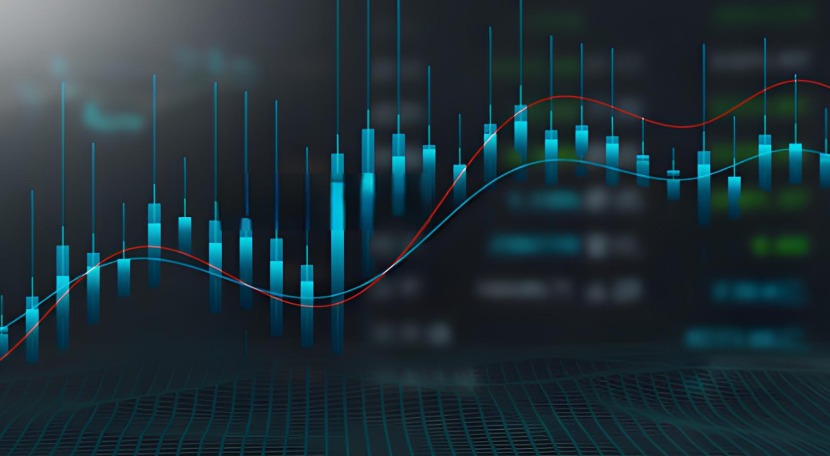Powell's Roundtable: Bitcoin's Rival is Gold
Advertisements
On a calm Wednesday afternoon in Manhattan, only a mile away from the shocking CEO assassination incident that rattled the nation, Federal Reserve Chairman Jerome Powell participated in an open interview event. This wasn't your typical serious policy discussion; instead, it felt more like a casual chat with the Chairman about pressing issues concerning the new administration, the state of the American economy, and even touchy subjects like cryptocurrencies. The atmosphere in the room was electric, anticipating Powell's insights and reflections.
Powell took a nostalgic journey back to his academic roots, where he graduated from Princeton with a degree in political science before earning his Juris Doctor from Georgetown University. Yet, it was through a bold knock on a door that transformed his life from a legal career into the realm of high finance and eventually politics. After graduating, Powell held various legal positions for six years. In 1984, he made the leap to Wall Street, joining the investment banking firm Dillon, Read & Co., and immersing himself in the world of finance under the leadership of Nicholas Brady—a man with a dynamic history as a senator and later as Secretary of the Treasury under Presidents Reagan and Bush.

During his candid discussion, Powell was open about his initial uncertainty regarding his career path. He candidly admitted that while he didn't have a concrete plan, he foresaw a future primarily spent in the private sector, occasionally stepping into public roles. Reflecting on his bold move to knock on Brady's opulent office door, he stated, "One day, I forced myself to go upstairs and knock on Brady's door, letting him know that if he ever needed someone in Washington, I'd be eager to serve." Surprisingly, that brief encounter led to a significant career opportunity, paving the way for his later roles in the Treasury Department, including persuading Warren Buffett to rescue Salomon Brothers from its financial troubles.
Powell emphasized the importance of overcoming fear in those pivotal moments, crediting his willingness to take that leap as instrumental in his career trajectory. Not even as he worked within the Treasury did he foresee that he would eventually find himself as the Chairman of the Federal Reserve. His journey underscores the unpredictability of career paths, highlighting how seemingly small, audacious actions can lead to defining moments in one’s life.
As the conversation shifted to the role of the Federal Reserve, Powell reiterated an essential principle: the institution's independence is a cornerstone of American economic policy, safeguarded by federal laws. He dismissed notions of a "shadow Federal Reserve," a theoretical concept suggesting the appointment of an unofficial figurehead to shape economic signals and render Powell's own communications irrelevant. With a knowing glance, he stated the improbability of such a scenario, emphasizing that the relationship between the Fed and the government, particularly the Treasury, is steeped in longstanding respect for boundaries and authority distinctions.
This respect is evident in a tradition that has prevailed for over 75 years: weekly lunches between the Fed Chair and the Treasury Secretary. These meetings, which vary between breakfast and lunch, are more than just social gatherings; they symbolize the solid infrastructure of policies that govern their interaction, serving as a crucial platform for dialogue on economic strategy.
While Powell acknowledged his ties to Wall Street, he conveyed a sense of cautious optimism about working with the newly nominated Treasury Secretary, who shares a background in finance yet remains unfamiliar to him. His calm reassurances painted a picture of confidence in establishing a productive working relationship.
In discussing current policies involving tariffs, Powell was astute, noting, "We don't know how much tax will be imposed, when it will happen, or how it will impact prices. Such uncertainty makes it impossible to craft coherent policy." He highlighted that while tariffs are a matter of concern, monetary policy remains focused on immediate economic realities, making it necessary to tread carefully in uncertain waters.
Transitioning to the state of the American economy, Powell struck an optimistic tone, declaring, “The economy is doing very well.” Highlighting noteworthy declines in inflation and relatively low unemployment rates, he indicated that conditions surpass early September projections. This robust economic performance grants the Federal Reserve leeway to approach interest rate adjustments with greater caution, signaling a potential shift in monetary policy crafted for long-term stability.
The talk took another interesting turn with insights into cryptocurrencies, particularly Bitcoin. Powell asserted that Bitcoin should be viewed as a competitor to gold—an asset—rather than the US dollar. "It's too volatile to be considered a stable means of payment or value storage," he remarked, pushing back against the notion that cryptocurrencies could replace traditional fiat money. He likened Bitcoin to a digital counterpart of gold, drawing parallels that resonated with traditional investors and crypto-enthusiasts alike.
Just before this discussion, the excitement in the cryptocurrency market had already surged, ignited by the announcement of a new SEC chair, Paul Atkins, a known supporter of digital currencies. Bitcoin prices jumped slightly in response to this news, showcasing just how intertwined the perceptions of regulatory figures and the cryptocurrency market can be.
In summation, Powell’s reflections during this Manhattan event painted a rich tapestry of his professional journey and the complexities of managing a vital institution like the Federal Reserve. Through candid anecdotes and an authoritative perspective on the economic landscape, he reinforced the importance of adaptability in navigating career trajectories, the imperative of maintaining institutional integrity, and an optimistic viewpoint on the current economic climate. As he wrapped up his reflections, it became clear that his leadership philosophy hinges on a mix of respectful tradition, profound insight, and an eye toward future challenges while navigating an ever-evolving economic landscape.
Leave a Comment